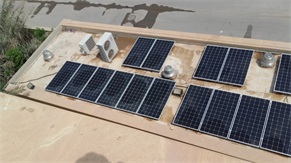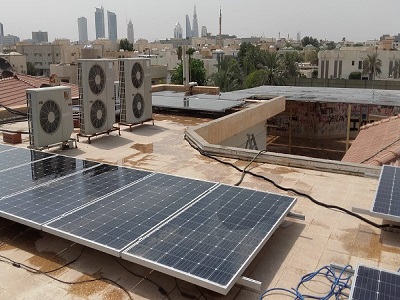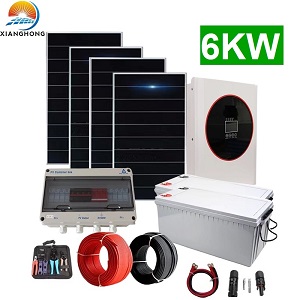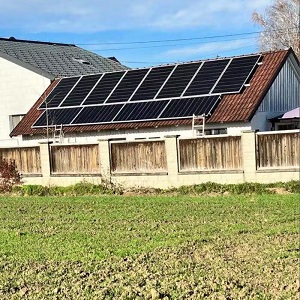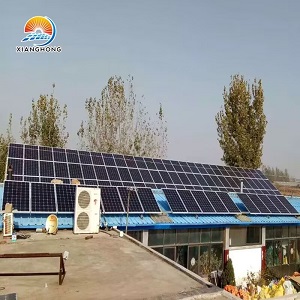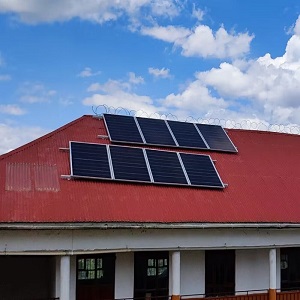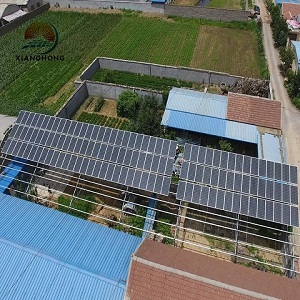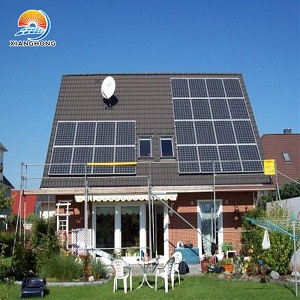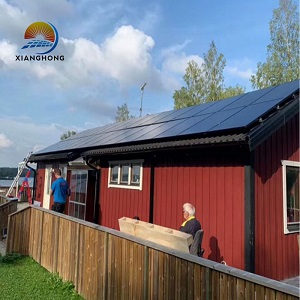Three types of solar power generation systems and manufacturer selection
 Xianghong
Xianghong  August 16,2024
August 16,2024
A solar power system is a device that uses solar energy to convert light energy into electrical energy. As the demand for renewable energy continues to grow, solar power systems are also widely used. This article will introduce several common types of solar power generation systems and their characteristics to help readers better understand and choose a solar power generation system that suits their needs.
1. On Grid solar power system
Network-connected solar power systems, also known as grid-connected solar power systems, connect the electricity generated by solar panels directly to the grid. Its main features include:
The excess electrical energy can be fed back to the grid to realize the automatic sale or storage of electric energy.
When solar energy is insufficient or electricity cannot be generated at night, the power supply can be obtained from the grid.
No additional battery storage system is required, reducing costs and maintenance.
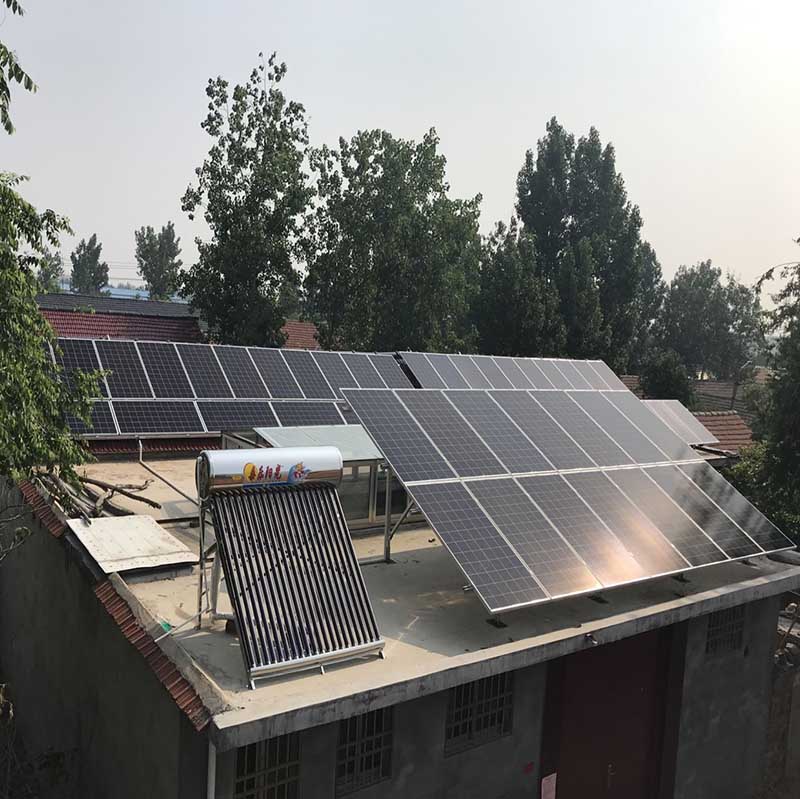
2. Off grid solar power system:
Off-grid solar power generation system, also known as an independent solar power generation system, is a solar power generation system that does not depend on the grid. Its main features include:
A battery storage system is required to store the power supply at night or when solar power is insufficient.
It can be powered independently and is suitable for remote areas or places that cannot be connected to the grid.
The DC power can be converted into AC power through the inverter to meet the needs of various electrical equipment.
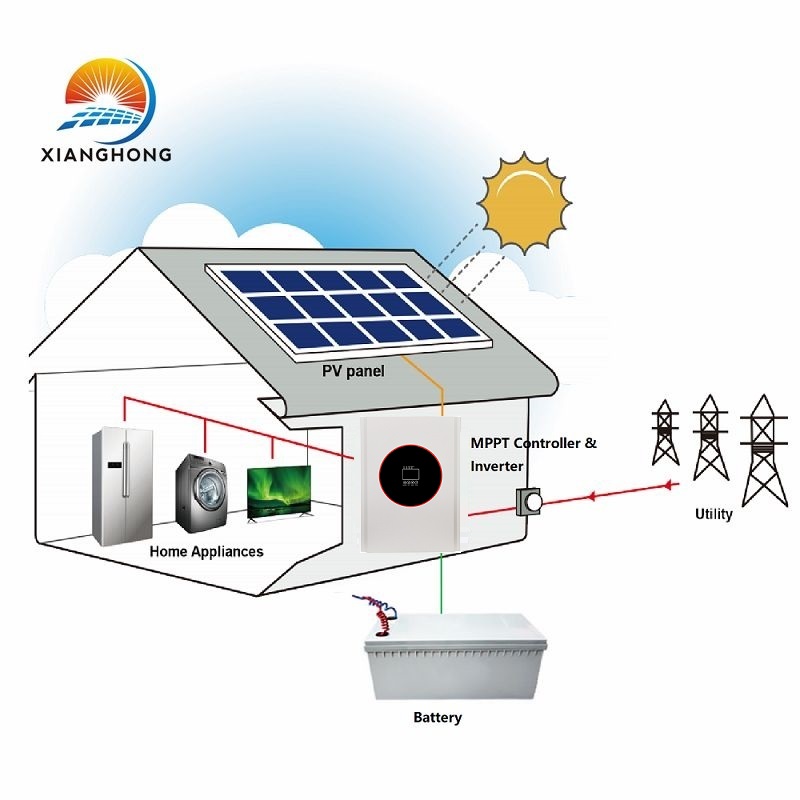
3. Hybrid solar power system:
A hybrid solar power system is a form of combining network-connected and off-grid solar power systems. Its main features include:
It can be connected to the grid and equipped with a battery storage system at the same time to achieve a dual power supply method.
When the grid power supply is unstable or interrupted, it can automatically switch to the off-grid mode to ensure the continuity of the power supply.
It provides higher flexibility and reliability and is suitable for places with higher requirements on power supply.
There are various types of solar power generation systems, and each type has its unique characteristics and applicable scenarios. When choosing a solar power generation system, comprehensive consideration should be made based on factors such as actual needs, budget, and local environmental conditions. Whether it is network-connected, off-grid, or hybrid solar power generation systems, they can provide users with clean and renewable electricity and contribute to environmental protection and sustainable development.
How to choose a suitable solar system manufacturer
1. Manufacturer reputation and reputation:
When choosing a solar power system manufacturer, the first thing to consider is its credibility and reputation. The reputation of the manufacturer can be evaluated in the following ways:
Check the history and experience of the manufacturer: choose a manufacturer with rich experience and a good reputation, and they usually have a high reputation in the market.
Research customer testimonials and feedback: Read customer testimonials and feedback to find out how satisfied they are with the manufacturer's products and services.
2. Quality and performance:
The quality and performance of solar power generation systems are directly related to the power generation efficiency and life of the system. When choosing a manufacturer, the following factors can be considered:
Product certification and standards: ensure that the manufacturer's products meet international standards and certification requirements, such as ISO 9001 quality management system certification, CE certification, etc.
R&D and innovation capabilities: Choose manufacturers with strong R&D and innovation capabilities, they are usually able to provide more advanced and efficient products.
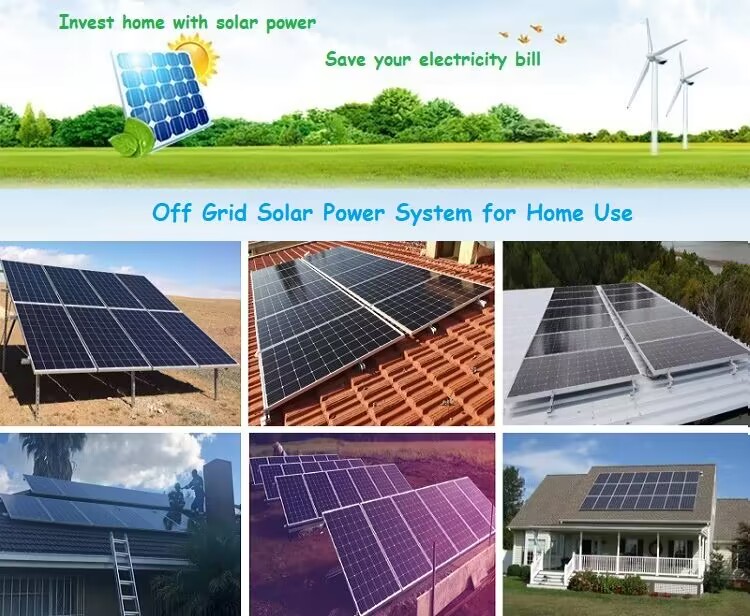
3. After-sales service and technical support:
After-sales service and technical support of solar power generation systems are crucial to the long-term operation and maintenance of the system. When choosing a manufacturer, the following factors can be considered:
After-sales service policy: understand the manufacturer's after-sales service policy, including warranty period, repair and replacement policy, etc.
Technical support team: Choose a manufacturer with a professional technical support team, who can solve problems and failures in system operation in a timely manner.
4. Price and cost performance:
Price is an important consideration when choosing a solar power system manufacturer. Value for money can be assessed in the following ways:
Compare quotations from different manufacturers: Obtain quotations from multiple manufacturers, compare the performance and quality of their products, and choose a manufacturer with higher cost performance.
Comprehensive consideration of price and quality: not only look at the price but also consider the quality and performance of the product to ensure that the selected product has a good cost performance.
Selecting a suitable solar power system manufacturer is a key step in ensuring system quality and performance. A wise choice can be made by evaluating factors such as the reputation and reputation of the manufacturer, product quality and performance, after-sales service and technical support, and price and cost performance. It is recommended to conduct sufficient market research and comparison before choosing and choosing those manufacturers that can provide high-quality products and high-quality services to ensure the long-term stable operation and benefits of the solar power generation system.

